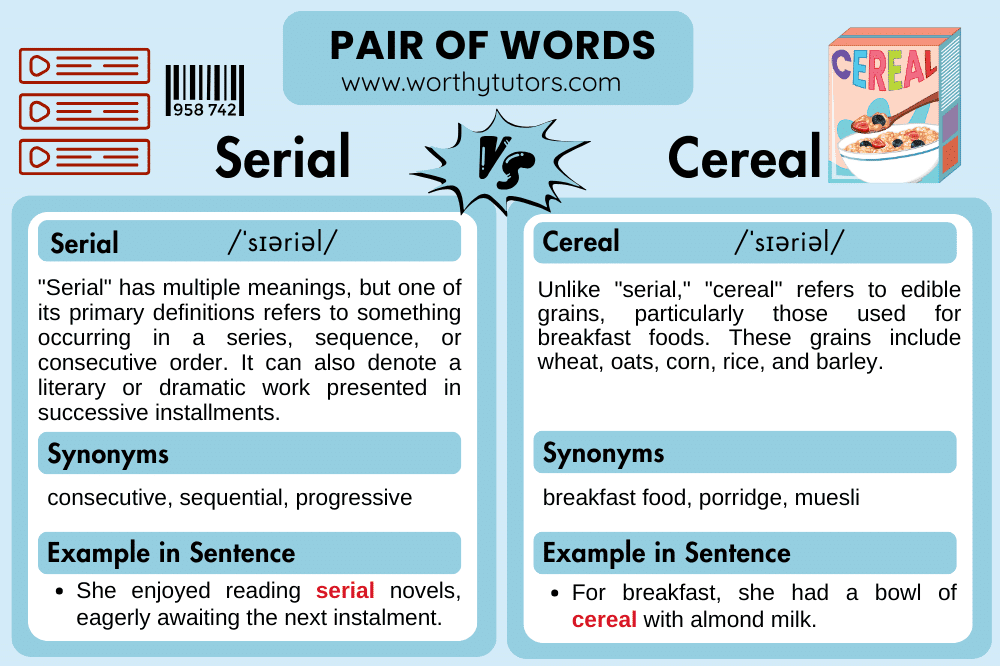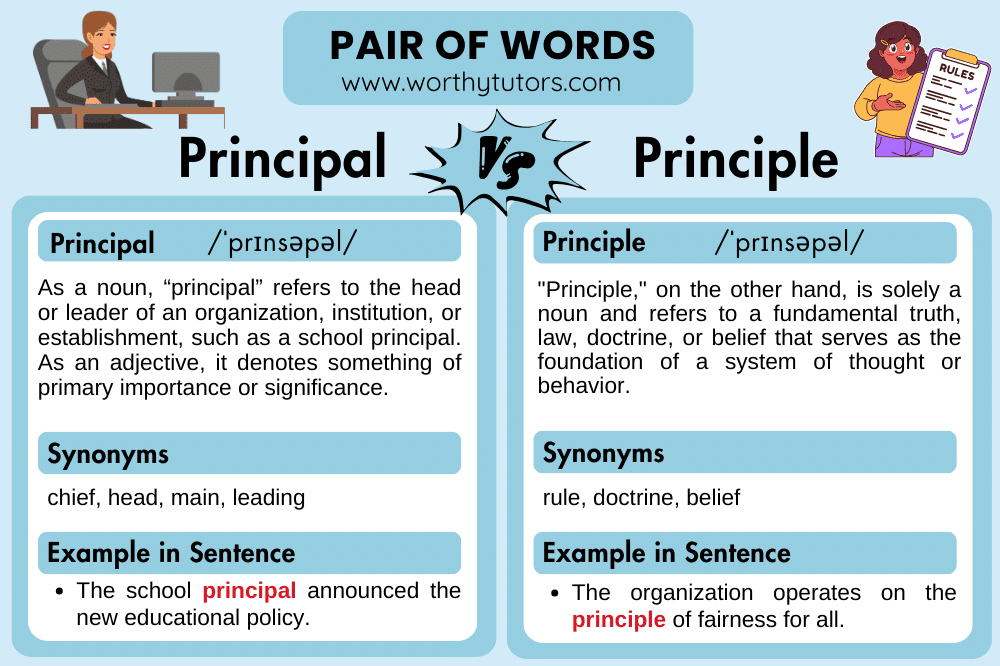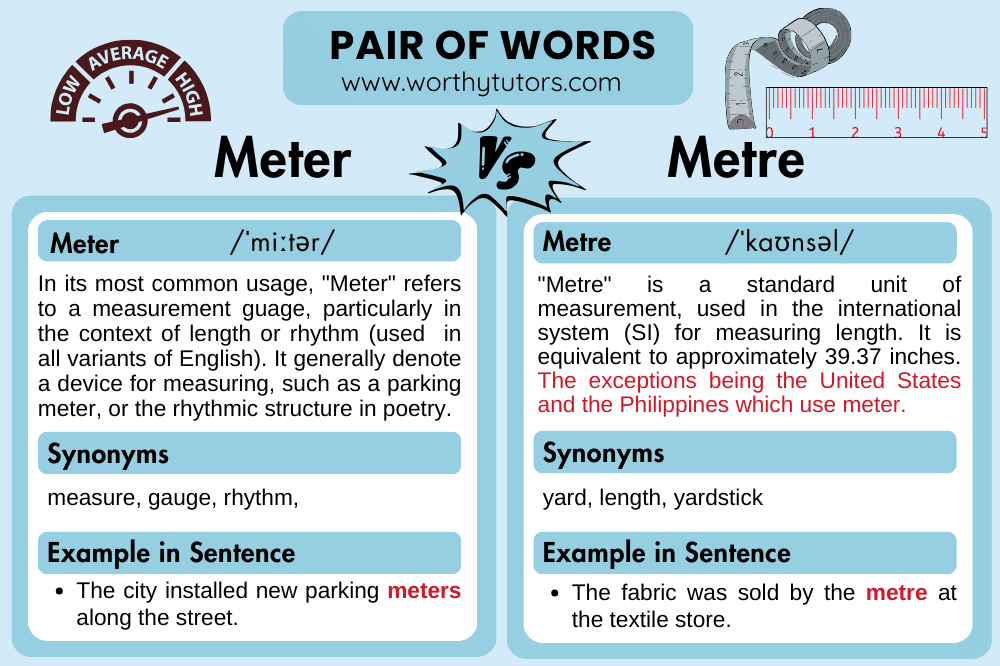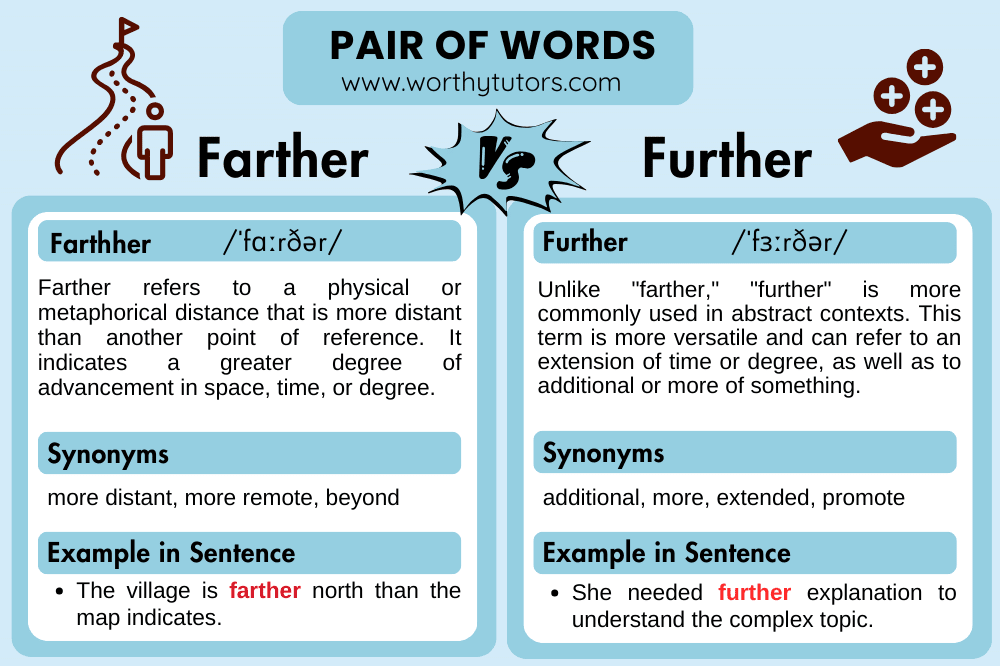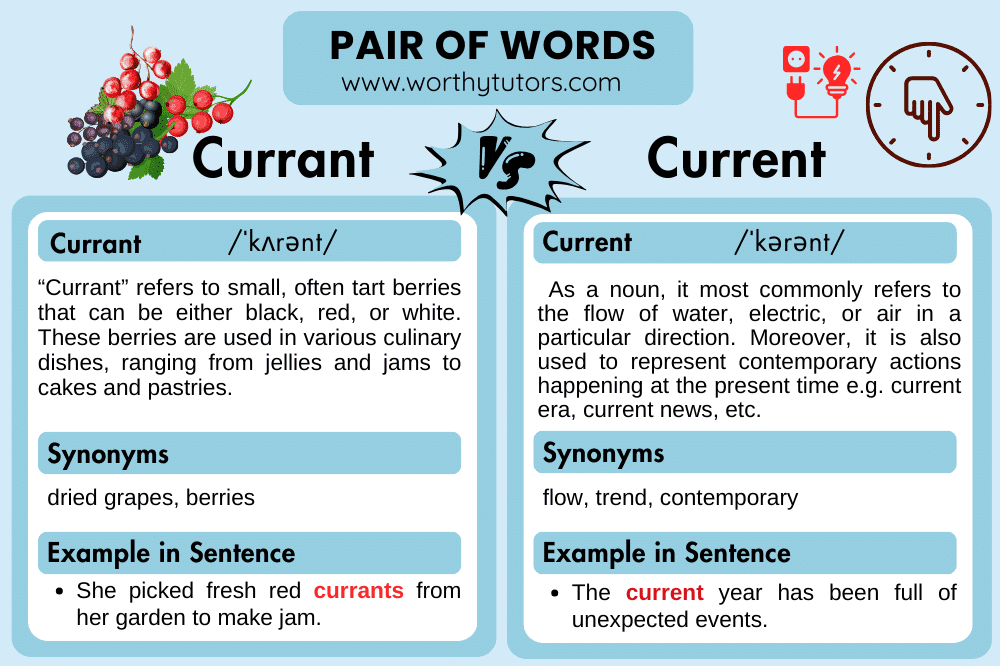Difference Between Stationary and Stationery The words “stationery” and “stationary” are perfect examples of homophones in the English language—words that …
Read MoreVocabulary
Understanding the Difference Between “Serial” and “Cereal”
Differences Between Serial and Cereal The English language is full of words that sound alike but have different meanings, known …
Read MoreDissecting a Pair of Word: Role vs Roll
Difference Between Role and Roll “Roll” and “role” are homophones, meaning they sound the same but have different meanings and …
Read MoreLearn the Differences: Principal vs. Principle
Difference Between Principal and Principle The words “principal” and “principle” are often confused due to their similar pronunciation. However, they …
Read MoreUnderstanding Meter vs. Metre | Difference & Usage
Differences and Usage | Meter vs. Metre The terms “meter” and “metre” are often a source of confusion because of …
Read MoreFlair vs. Flare: Understanding the Difference
Differences Between Flair and Flare The English language is replete with homophones, words that sound alike but have different meanings …
Read MoreKey Difference Between Farther and Further
Differences Between Farther and Further The words “farther” and “further” are often used interchangeably in the English language, but they …
Read MoreUnderstanding the Difference Between Immigrate and Emigrate
Differences Between Immigrate and Emigrate The act of moving from one country to another is a significant event in a …
Read MoreCurrent vs. Currant: Understanding the Key Difference
Differences Between “Currant” and “Current” The words “current” and “currant” are homophones, which means they sound the same but have …
Read MoreUnderstanding the Difference: Counsel vs. Council
Differences Between “Counsel” and “Counsil” Confusion between similar-sounding words is a common issue, particularly for ESL students. In the English …
Read More
